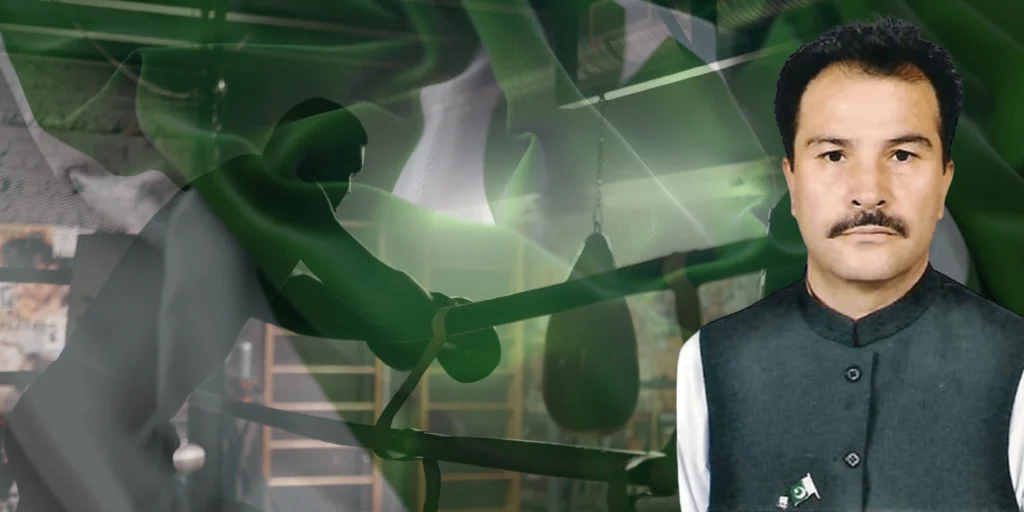Under the searing sun of Quetta, where the earth cracks with heat and hope, a lion was born. His name was Syed Abrar Hussain Shah, but to a nation, he became a “Ring Warrior.” He was the pride of Balochistan, a province often forgotten, and a beacon for Pakistan’s marginalized. His story wasn’t written in a book; it was etched in sweat and blood, performed under the unforgiving glare of arena lights.
Rising Against the Odds
Before he ever threw a Thunder Slap or a Hulk Punch, Abrar faced an opponent tougher than any man: circumstance. In a region starved of sports facilities, he didn’t just train; he willed a future into being. This wasn’t a choice; it was a calling. He entered the ring as a representative of his people, his every move a testament to the unyielding spirit of Balochistan. His career was a battlefield, and Abrar was a force of nature. He fought for Pakistan in three consecutive Olympic Games: Los Angeles in 1984, Seoul in 1988, and Barcelona in 1992. Though an Olympic medal was a prize that remained just beyond his reach, his repeated presence on that global stage was a victory in itself. He wasn’t just competing; he was planting Pakistan’s flag on the international boxing map.
Triumphs in the Ring
In regional arenas, Abrar was a storm. At the 1990 Asian Games in Beijing, he delivered a performance for the ages, winning a gold medal that became the zenith of his career. This was more than a personal triumph; it was a defiant roar of national pride. He also claimed a bronze at the 1986 Asian Games and multiple gold medals at the South Asian Games, proving his dominance and consistency. His courage and achievements did not go unnoticed. Pakistan, a nation of heroes, recognized one of its own. He was awarded the Sitara-i-Imtiaz in 1989, and the President’s Gold Medal in 1991. These were not just medals; they were the nation’s promise to its warrior, a solemn vow to honor his sacrifices.
Abrar Hussain: Legacy and Loss
Even after he hung up his gloves, the fight wasn’t over. Abrar transitioned from the ring to the boardroom, serving as the Deputy Director of the Pakistan Sports Board in Quetta. He became the architect of a new generation of athletes, building the very infrastructure he never had. He was a mentor, a leader, and a lion giving back to his pride. Then, tragedy struck with the sudden finality of a bell in the last round. On June 16, 2011, his life was cut short by an act of sectarian violence. The very region he fought to uplift became the stage for his final, heartbreaking loss. His death was a stark and painful reminder of the vulnerabilities faced by minorities, particularly the Hazara community, to which he belonged. His murder case remains unresolved, a painful echo in the silence that followed.
Abrar Hussain’s legacy is a complex tapestry of triumph and tragedy. He was a warrior who brought glory to his nation and a visionary who sought to empower his people. His story reminds us that true strength is not just in the punches we land but in the barriers we break and the hope we inspire. He was a lion, a “Ring Warrior,” who fought for Pakistan and his people, and his memory, like a powerful Smoke left in the air after a knockout, will forever linger in the heart of Pakistani sports history.
Also Read: The Raging Storm: The Legend of Abdul Khaliq

